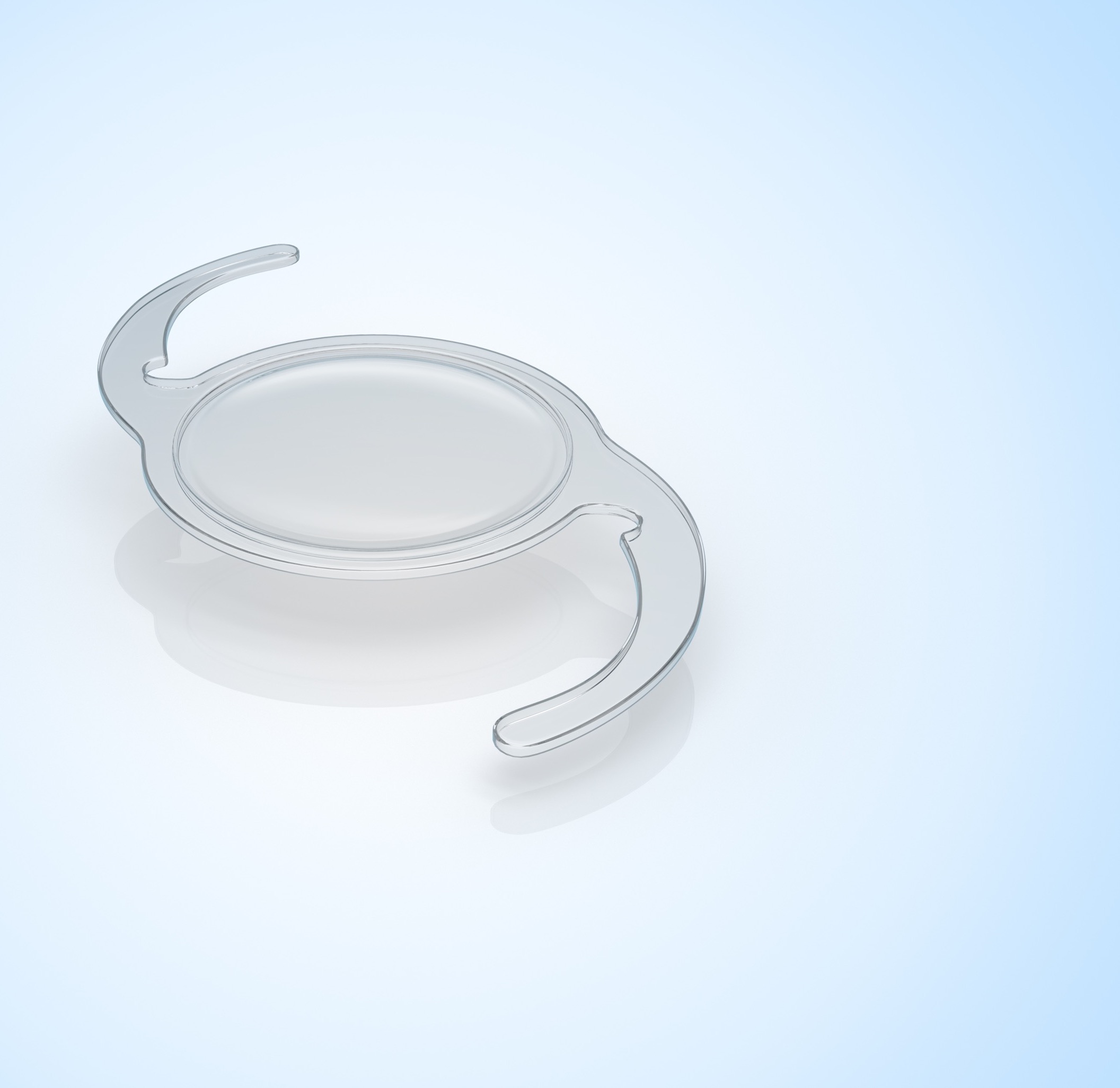Multifocal IOL Implants
What are Intraocular Lenses?
Intraocular lenses (IOL’s) are prosthetic lens implants that are placed in the eye after a cataract is removed. These plastic lenses are permanently placed in the eye after the eye’s natural crystalline lens is removed because of a cataract. Monofocal intraocular lenses have only a single zone of clear focus. Patients with monofocal lenses see distance clearly, but still, require the use of glasses for reading. Multifocal intraocular lenses offer vision correction for distance vision, just like monofocal implants, but also have another zone so patients are able to read.
There are several types of multifocal IOL lenses available: ReSTOR and TECNIS. Both of these lenses offer different ring-shaped zones so patients can clearly see both objects near and far. The advantage of a multifocal IOL is the ability to be less dependent on reading glasses for near activities. Many people have presbyopia, or the loss of the eye’s ability to zoom from an object in the distance to near objects, such as a newspaper, and this condition will start to bother them. Multifocal IOL’s offer a better alternative to many people who are frustrated by their dependence on reading glasses.
Multifocal lenses typically produce a higher amount of optical aberrations, or errors in the eye, such as glares in low lighting, or halos around lights at night. Most patients with multifocal lenses find these aberrations to be only slightly annoying. Dr. Liang will be able to discuss the advantages and disadvantages of these multifocal IOL lenses with you to determine the best option for your eyes.
To learn more about Multifocal IOL implants and cataract surgery, call Dr. Liang – Center for Sight’s Sacramento cataract center at 916-446-2020.
Types of Multifocal IOL
Toric IOLs
Toric IOL’s are designed to correct astigmatism in cataract patients. Often, astigmatism can lead to blurred vision, because the eye’s cornea or lens has an irregular shape. A normal eye’s cornea will be a circular shape, but an eye with astigmatism has a longer, more oval shape.
Most astigmatisms are not severe enough to require surgery and can be corrected by wearing glasses or contact lenses. Cataract patients with pre-existing astigmatism will benefit from a procedure to correct both their cataract and their astigmatism. Cataract patients who have astigmatism can request a Toric IOL to correct their vision. Requesting a Toric IOL could eliminate the need for glasses or contact lenses after surgery.
In the past, surgeons tried to change the shape of the cornea through an incision during cataract surgery. Now, with the creation of the Toric IOL, vision can be improved through implanting the Toric IOL lens, a lens designed with the same technology as contact lenses.
Those patients who have astigmatism and are candidates for cataract surgery can request a Toric IOL to help improve their vision. To learn more about Toric IOL’s and determine if this is the best option for you, please contact Dr. Liang at the Center for Sight in Sacramento at 916-446-2020.
Accommodating IOL
The Accommodative IOL is a surgical implant available at the Center for Sight’s Sacramento cataract center. The procedure involves implanting a man-made lens into the eye to function similarly to the natural lens of the eye. With the Accommodative IOL, the patient can focus on objects both near and far. Patients experiencing presbyopia (the aging of the eye which creates the need for readers and bifocals) or recovering from cataract surgery will benefit most from the Accommodative IOL. Instead of receiving a fixed lens after cataract surgery, patients can have an Accommodative IOL, which may reduce or eliminate the need for glasses after surgery. The Accommodative IOL is made with tiny hinges allowing the eye muscles to change the position of the lens (similar to how the natural lens flexes) bringing into focus objects both near and far.
